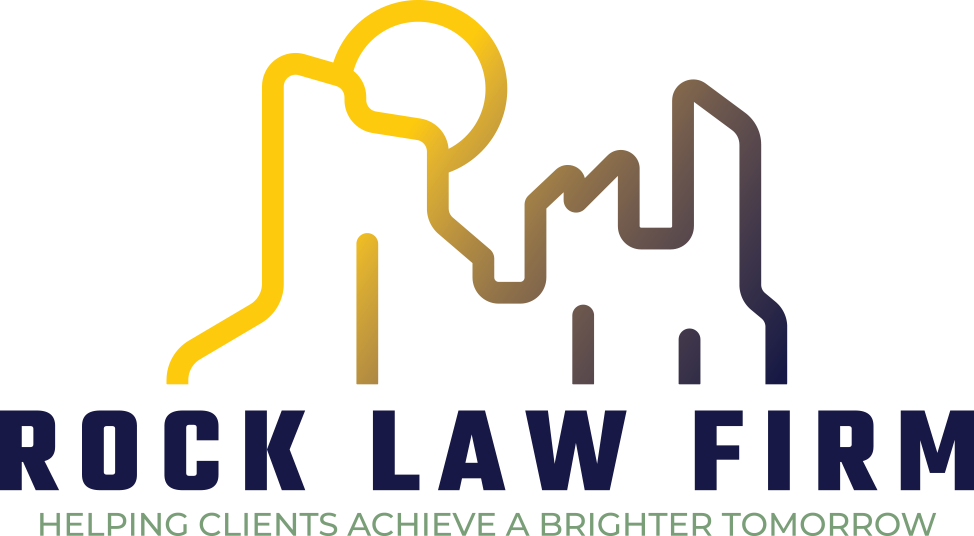Stop Wage Garnishment
Take Action to Protect Your Income
At Rock Law Firm, we are dedicated to helping the residents of Tempe and the greater Phoenix area find relief from insurmountable debt and prevent loss of income. We can help you stop creditors from garnishing your wages and help you find debt relief solutions. We offer free consultations and zero-down bankruptcy filing to help you live beyond debt rather than piling on more. At the “nice guy” law firm, our legal team uses our experience to help you find a brighter tomorrow. Contact Rock Law Firm today!
Wage Garnishment

Avoid Wage Garnishment By:
- Responding to Collection Notices and Creating a Repayment Plan
- Filing an Objection to Garnishment Orders
- Prevent Falling Behind on Taxes and Child or Spousal Support
- Contacting a Bankruptcy Attorney

Wage garnishment is the legal process by which a creditor receives permission to withhold funds directly from your paycheck prior to you receiving your pay. Most forms of debt collectors require a judgment to be filed and approved by the courts, and then they must follow wage garnishment guidelines. Some forms of debt, however, may be collected without a judgment, including back taxes, child support, and defaulted student loans.
Arizona state law dictates that only non-exempt wages can be levied following specific stipulations. For instance, only 25% of your nonexempt pay can be garnished from each paycheck and a specific amount must be reported to your HR department for collection.
Preventing Wage Garnishment
There are several ways that you can prevent wage garnishment that includes not defaulting on certain debts including child support, income taxes, or student loans, or filing an objection. When a wage garnishment order or judgment is issued, you will be notified of the time frame to object to the garnishment. Typically you will have anywhere between five days and one month to file an objection before further action is taken.
Preventing Wage Garnishment
There are several ways that you can prevent wage garnishment that includes not defaulting on certain debts including child support, income taxes, or student loans, or filing an objection. When a wage garnishment order or judgment is issued, you will be notified of the time frame to object to the garnishment. Typically you will have anywhere between five days and one month to file an objection before further action is taken.
Filing an Objection
A wage garnishment objection is a detailed explanation of why you do not feel the garnishment judgment is just. You will have to provide an extensive explanation for the debt, any repayment efforts or plans, and why you should not be responsible for repaying the debt. For instance, if the debt to be levied is more than the borrowed amount, is not owed by you, or was reported in error, you can explain the situation and provide proof.
When filing an objection, it helps to have an experienced attorney who is familiar with wage garnishment exemptions and court verbiage. Your lawyer can help you draft a convincing objection that evokes authority and conviction.
Filing For Bankruptcy
To prevent wage garnishment from sources that are not child or spousal support, filing for bankruptcy will place an automatic stay on your assets and income. That means that even if a judgment has already been issued against you and your objection either wasn't filed or was denied, the wage garnishment cannot continue until the bankruptcy is finalized. Bankruptcy will halt any collection attempts from lenders, including income tax, mortgage brokers, and loan holders. Once the bankruptcy proceedings are complete, judgments may be reissued or negated.
How Bankruptcy Can Help
When you file for bankruptcy, it initiates an “automatic stay,” which prohibits debt collection attempts and wage garnishment until the bankruptcy filing is settled.
Filing a Chapter 7 bankruptcy allows you the opportunity to eliminate debts while continuing to protect your income. Funds from non-exempt sources may be required to be used to pay down the balance of existing debts before you are granted a discharge of the rest, but your wages will be free of the threat of garnishment.
A Chapter 13 bankruptcy filing will allow you to negotiate repayment terms within your means while preventing wage garnishment. You may also be eligible to discharge certain forms of your unsecured debt. In many cases, you may be able to refinance your balance to make payments more affordable and realistic, allowing you to make good on some debts while affording life's necessities.
For many Arizona residents, the reality of collection agencies coming after their hard-earned wages and causing strife for their families is all too real. It is important to know that if you find yourself facing a wage garnishment judgment, filing for bankruptcy may give you the financial fresh start you need.
Trust in Tempe’s Rock of Justice
At the Rock Law Firm, our experienced bankruptcy legal team offers judgment-free experience with zero-down filing options. Let us help you prevent wage garnishment and find a brighter tomorrow. Contact us for your complimentary consultation today!
